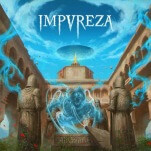I Am Michael

Now that we’ve installed in the White House a president who shamelessly stoked the fires of intolerance and hate in his campaign for office, this might seem like the wrong time for the release of a film like I Am Michael, a docudrama chronicling the story of Michael Glatze, an out and proud gay man who eventually renounced his homosexuality and became a Christian pastor. To his credit, co-writer/director Justin Kelly is not interested in either celebrating Glatze or demonizing him. Instead, Kelly simply finds him an object of fascination, one worthy of psychological scrutiny and, to a point, understanding. Thus, few attempts are made to explain his behavior. Only the evocative electronic score by Jake Shears and Tim Kvasnovsky come anywhere close to elucidating what Glatze himself may feel as he wrestles with the intersection of his newfound faith and his sexuality.
Lest that imply a chilly and detached viewing experience, thankfully I Am Michael—executive produced by Gus Van Sant—boasts James Franco in one of his better (read: less catatonic) dramatic turns. But then, perhaps his intensity and commitment here shouldn’t be a surprise, considering his long-running interest in homosexuality. This isn’t just evident in the rumors that have swirled over the years (many of them addressed in this recent Rolling Stone profile on the actor), but also in many of his on-screen efforts. Though he has helped turned homoeroticism into a joke with mainstream comedies like Pineapple Express, This is the End and The Interview, some of his work as a director—like Interior. Leather Bar., his and Travis Mathews’ essay-film riff on William Friedkin’s notorious 1980 film Cruising—have shown a more sincere desire to explore gay culture. Franco’s performance as Michael Glatze thus could be seen as a natural extension of his artistic concerns as an actor and director, and he delivers a performance that, by sheer dint of his sensitivity and charisma, bridges gaps in the character’s complex psychology that Kelly purposefully leaves open.
-

-

-

-

-

-

-

-

-

-

-

-

-

-

-

-

-

-

-

-

-

-

-

-

-

-

-

-

-

-

-

-

-

-

-

-

-

-

-

-








































